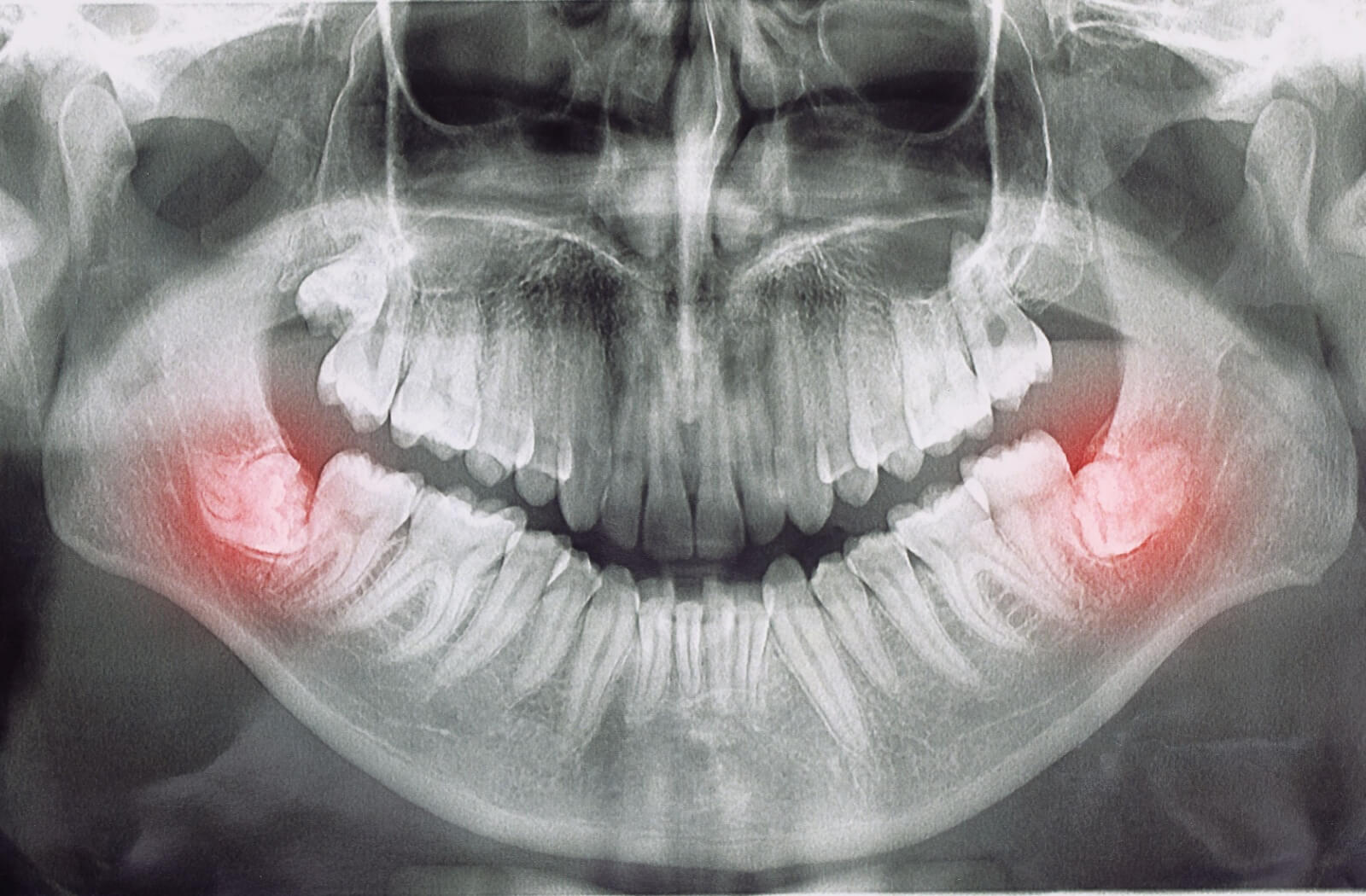If you’re at the age when your wisdom teeth begin to come in, your dentist may notice this during your dental exam and recommend surgery to remove these teeth before they cause issues. Recovering from surgery doesn’t take long, but it can impact your daily life for a few weeks—especially your diet.
Expect a change in your eating habits when recovering from wisdom teeth surgery. Scrambled eggs, broth, smoothies, and other soft foods should make up your diet as you recover from surgery.
Why Do People Need Their Wisdom Teeth Removed?
Your wisdom teeth are the last teeth you develop, molars that sit at the back of your mouth. They typically develop when someone is in their late teens or early 20’s. While some patients develop wisdom teeth without issues, many others need these molars removed.
Wisdom teeth are typically only removed if they have caused or are going to cause problems, such as pain, teeth shifting, or infections. Your dentist can assess your teeth and determine if you need your wisdom teeth removed.
While each patient is different, you will generally need surgery if:
- Your wisdom teeth are causing pain due to infection or damage to your jaw or teeth.
- Your wisdom teeth are going to cause future issues as they develop and try to erupt into your mouth.
- Your wisdom teeth are shifting or damaging your adjacent teeth.
- Your jaw doesn’t have enough room to hold your wisdom teeth, and your wisdom teeth will remain unerupted and become a potential hazard as you age.
What Issues Can Wisdom Teeth Cause?

A concern with wisdom teeth is the possibility of impaction. When this happens, your molars don't emerge properly due to space constraints, leading to discomfort, inflammation, possible infection, possible damage to adjacent teeth, and bone problems.
When these molars eventually emerge, they frequently affect teeth alignment due to limited space. Cleaning these teeth at the back of the mouth can also be challenging, increasing the risk of cavities, overcrowding, and infection.
What Happens During Wisdom Teeth Surgery?
Wisdom teeth surgery is relatively straightforward and happens under either local or general anesthesia.
The surgical process involves creating a small incision in the gums if necessary. This allows your surgeon to access your wisdom teeth before loosening the teeth, then carefully removing them. Sometimes a surgeon may choose to break the teeth and remove them in pieces if it’s easier.
Discomfort and swelling are common after wisdom teeth surgery is complete but this typically resolves over the next couple of days. Your surgeon will provide aftercare instructions and, likely, pain medication before sending you home to recover.
Wisdom Tooth Removal Aftercare
You can expect several symptoms after wisdom teeth surgery. These symptoms typically improve each day as you heal.
Some possible symptoms include:
- Swelling
- Discomfort
- Minor bleeding
- Sore jaw joint
- Bruising
While you should feel back to normal in around 2 weeks, taking care after surgery is important to help prevent complications.
One big worry for patients is the development of a dry socket—occurring when the blood clot necessary for healing your wounds becomes dislodged or does not form. Follow your surgeon’s instructions carefully to avoid causing a dry socket, the most important one is no smoking or straws.
Additionally, avoid exercising for at least 24 hours after your surgery as that elevates your blood pressure and will promote bleeding and increase swelling. To help you rest, keep yourself comfortable using your prescribed or over the counter pain medication as directed, ice your jaw 20 minutes on and 20 minutes off to avoid frostbite, and ensure you have the right foods and beverages to keep yourself nourished for healing.
What Can You Eat & Drink After Wisdom Teeth Removal?
Having the right foods and drinks is vital as you recover from wisdom teeth removal. A diet of soft, healthy food is ideal as you return to normal.
Some suitable recovery foods and drinks include:
- Blended soup
- Yogurt
- Broth
- Smoothies
- Scrambled eggs
- Mashed banana
- Mashed potatoes
- Applesauce
- Avocado
- Oatmeal
- Cottage cheese
- Salmon
What Should You Avoid?
Unfortunately, you can’t return to some of your favourite foods immediately after surgery. You can gradually add more to your diet as your wounds heal, but chewy, hard, and crunchy food can be difficult and even dangerous to eat. Ensure you follow your dentist’s aftercare instructions, including the food and drinks you can and can’t have.
Here are some things to avoid as you recover from surgery:
- Smoking, as it slows healing and can cause dry socket.
- Hard, crunchy snacks like chips or cookies that can become lodged in the surgical sites, causing potential complications like infection or torn stitches.
- Small, bite-sized snacks like nuts that can become stuck in areas that are healing.
- Alcoholic drinks, which can irritate the healing wounds in your mouth and may interact with your pain medication.
- Chewy foods, which can be challenging to eat as your mouth heals, especially in the initial days.
- Spicy foods, as they can irritate your wounds.
- Straws, as sucking can disrupt the healing process and increase the risk of a dry socket.
Your Dentist Is Here to Help
Wisdom teeth surgery can be over before you know it, but prepare to stay diligent during recovery. Follow your dentist’s aftercare instructions and avoid foods and drinks that could irritate your wounds. Soft, healthy foods are your friends—and please feel free to ask about any foods you’re unsure of.
Contact Centennial Smiles if you notice your wisdom teeth coming in. We’re here to guide you through every step of the process.
